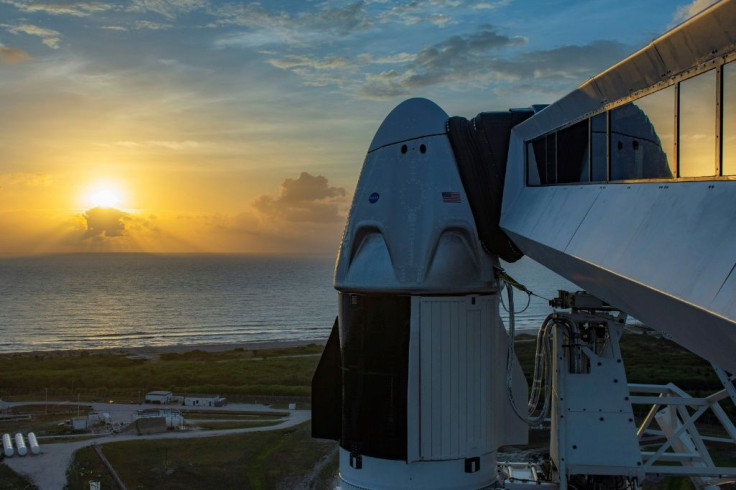NASA, SpaceX Delay Crew-1 Mission Due To 'Off-Nominal Behavior' From Falcon 9
KEY POINTS
- NASA and SpaceX's crewed mission has been delayed to November
- The agency cited "off-nominal behavior" from the Falcon 9's engine
- The delay can provide more time to ensure the mission's safety
NASA and SpaceX's Crew-1 has been delayed due to "off-nominal" behavior from the Falcon 9.
It was in May when NASA and SpaceX successfully launched astronauts Bob Behnken and Doug Hurley to the International Space Station (ISS), marking the first time that American astronauts launched from American soil in nearly a decade. But that successful mission was just a demonstration and the first actual crewed operational flight of a Crew Dragon spacecraft, the Crew-1 mission, was set for a late October launch following several delays.
But on Oct. 1, NASA released a statement on the Crew-1 mission, noting a new target of "no sooner than early-to-mid November." The agency cited "off-nominal behavior" from the Falcon 9's first stage engine gas generators during a recent non-NASA mission.
Although the agency did not specify which mission this was, it was just last Oct. 2 when the Falcon 9 launch set to carry a GPS 3 satellite was scrubbed just two seconds before liftoff. An earlier Falcon 9 Starlink launch was also scrubbed with just seconds before liftoff although it was later successfully launched on Oct. 6, SpaceNews reports.
"NASA and SpaceX will use the data from the company's hardware testing and reviews to ensure these critical missions are carried out with the highest level of safety," the agency said in the statement.
Meanwhile, another launch set to use the Falcon 9, the Sentinel-6 Michael Freilich, is still scheduled for Nov. 10.
No matter when the launch will take place, NASA and SpaceX's Crew-1 mission remains the same, with the plans to send NASA astronauts Michael Hopkins, Victor Glover and Shannon Walker, as well as the Japan Aerosoace Exploration Agency's (JAXA) Soichi Noguchi to the ISS aboard the Crew Dragon spacecraft aptly dubbed Resilience.
"The Crew-1 mission is a major step for NASA's Commercial Crew Program," NASA said in the statement. "Operational, long duration commercial crew rotation missions will enable NASA to continue the important research and technology investigations taking place onboard the station."
Meanwhile, the other mission under NASA's Commercial Crew Program, Boeing's Crew Flight Test, is set for a 2021 launch. When it launches, it will have an all-NASA crew after astronaut Chris Ferguson stepped down from the mission just last week on Oct. 7.

© Copyright IBTimes 2024. All rights reserved.






















